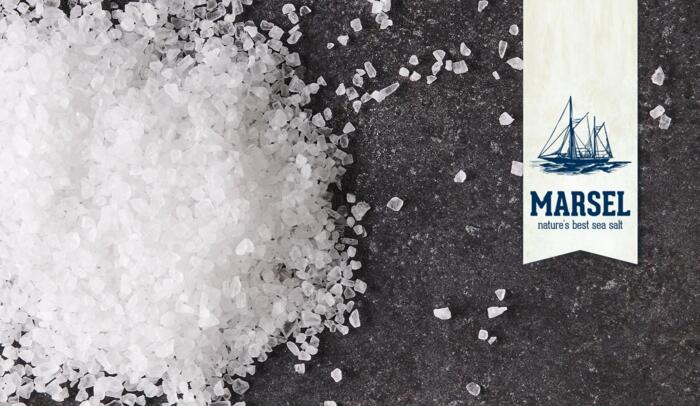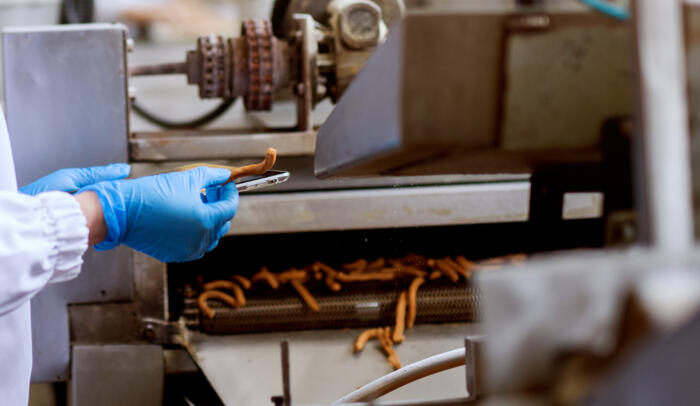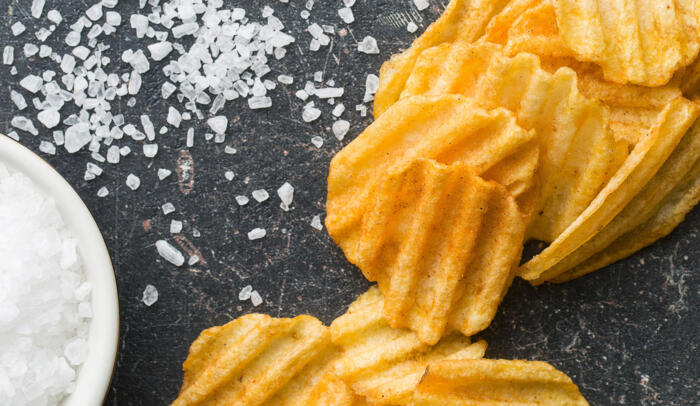4 advantages of sea salt for organic products
Organic products are the big thing right now. Both in restaurants and at home, sustainability and pure products have been a hot topic in recent years. However, this also means that competition between organic food processors is at an unprecedented level. That's why it is essential to extend your company's sustainable philosophy to the smallest details, for example by using high-quality sea salt instead of conventional kitchen salt (PDV salt). We outline 4 specific advantages.
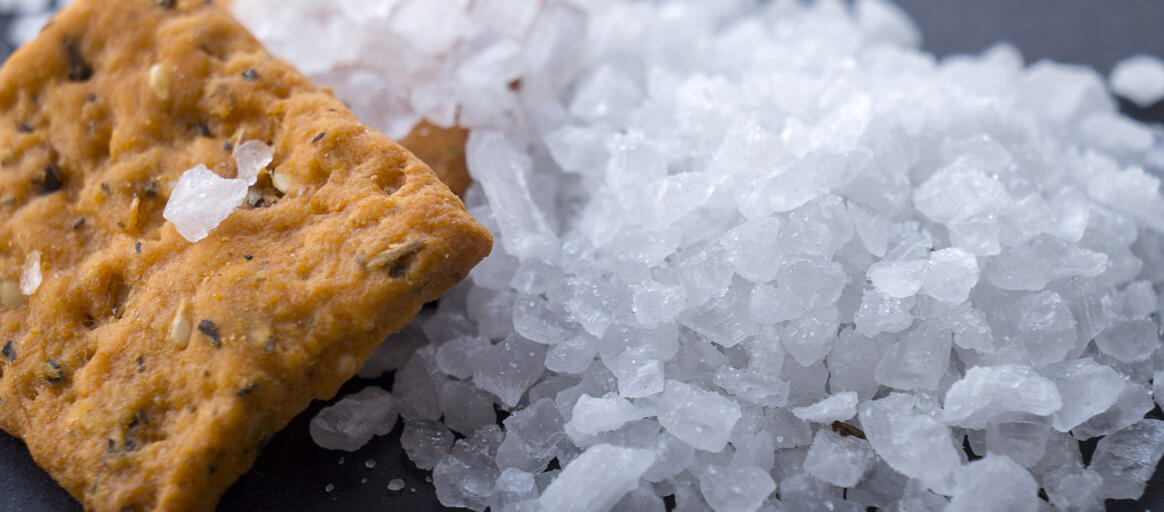
To obtain PDV salt - the conventional kitchen salt - much more energy is required. In addition, soil layers are excavated in the process, which damages the environment. Sea salt is happy to use natural forces in the form of sun and wind.
Sea salt vs PDV salt
To get the most out of this article, it is important to understand the difference between sea salt and PDV salt. They both consist of sodium and chloride, but sea salt and conventional kitchen salt have a very different extraction process.
For sea salt, natural seawater is evaporated in salt basins. The heat from the sun and wind help the water evaporate, forming a salt crust which is subsequently harvested. On the other hand, to extract PDV salt, brine from underground salt deposits is brought to the surface to be chemically purified, evaporated and crystallised into fine salt granules.
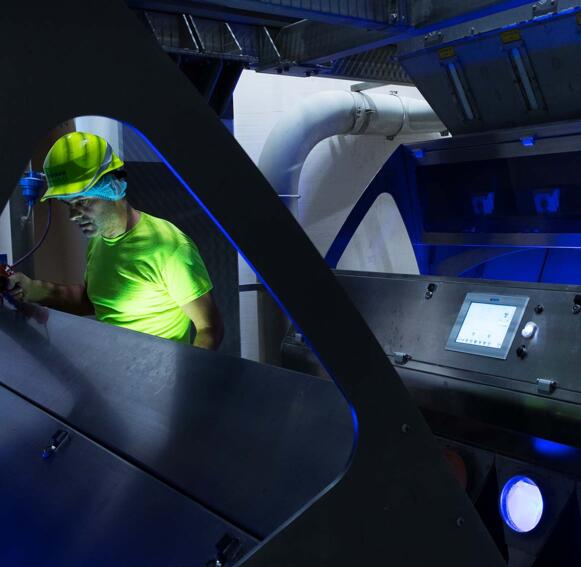
Sea salt ≠ sea salt
Precisely because sea salt is extracted from seawater, it contains slightly more natural impurities (such as grains of sand or shell fragments) than PDV salt. As a result, there are also major differences in quality and purity between the types of sea salt available.
MARSEL®, for example, the sea salt from Belgian manufacturer ZOUTMAN, stands out as it is refined using state-of-the-art techniques. This means that MARSEL® sea salt rivals the purity of PDV salt, and at the same time offers all the advantages of sea salt. The following advantages are therefore specifically applicable to high-quality sea salt such as MARSEL®.
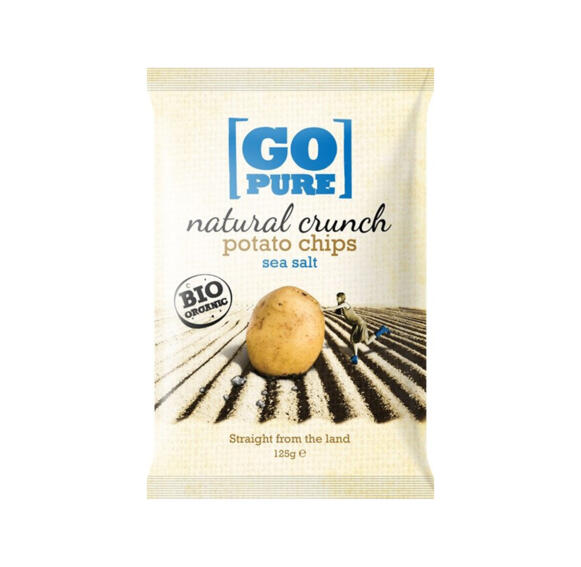
1. No additives
When sea salt is refined, the raw salt crystals are only washed with pure water. In other words, unlike the refining process for PDV salt, no chemical substances are used. In addition, anti-caking agents are usually added to PDV salt. That's not necessary for sea salt such as MARSEL®. The crystal structure of the sea salt prevents clumps from forming. So there are no 'E' numbers indicated on the packaging of your organic product! This is a future-oriented and strategic choice, because more and more retailers are banning products that contain additives.
2. Low CO2 impact
People who buy organic products usually do so for two reasons: their own health, but above all the well-being of the environment. The fact that sea salt extraction has a smaller CO2 impact in comparison with PDV (vacuum) salt is clearly an extra bonus in that respect. To obtain PDV salt - the conventional kitchen salt - much more energy is required. In addition, soil layers are excavated in the process, which damages the environment. Sea salt, on the other hand, is happy to use natural forces in the form of sun and wind. The perfect addition to your sustainable philosophy.
3. Unrivalled taste sensation
How do you stand out from your competitors selling organic products? With the taste of your products of course. Sea salt gives you a helping hand. Especially in uses where coarser grains of salt are needed, you can really taste the difference between sea salt and PDV salt. Sea salt is nice and crunchy, creating an unrivalled taste sensation in your mouth. Apart from that, sea salt contains numerous minerals and trace elements which the human body needs, such as magnesium. These give sea salt a more subtle and smoother taste. Moreover, various studies have shown that consumers experience sea salt as tastier, healthier and more sustainable than traditional PDV salt in any case. More and more food producers are making good use of this by incorporating 'sea salt' on the packaging as an advantage.
4. The right grain size for every use
When sea salt is extracted, coarse, irregular salt crystals are formed. What is the advantage? During refining, sea salt can be broken up as fine or as coarse as you wish, unlike PDV salt. That way, you can obtain the right grain size for every product. Whether you season snacks with it, complement your spice mix, season sourdough bread to taste or any other product you want to give an extra kick: you can easily use sea salt for every purpose.
Sea salt is therefore clearly a sustainable and tasty choice for your organic products. So why doesn't MARSEL® have an organic label yet? The simple answer is that there is no organic certification for salt. It therefore can’t be certified organic (yet). At the European level, however, an expert group has been set up to make this possible.
